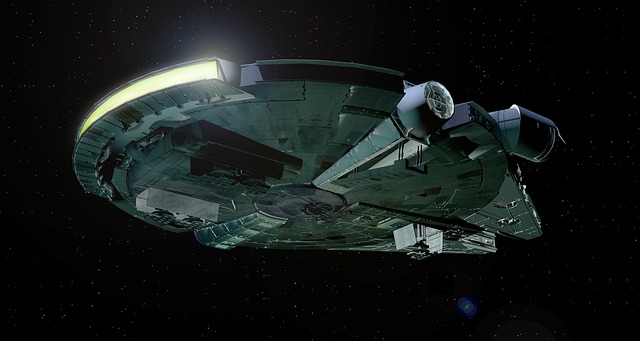A saga refers to a long story that typically follows the same characters or storyline across multiple installments. A franchise, on the other hand, refers to a business model where a company grants the right to use its brand and system to another party in exchange for fees and royalties.
What is a saga?
(Image by Petra Šolajová from Pixabay )

A saga is a long story, often told over several books or films, that typically follows the same characters or storyline. It is a narrative that is usually divided into multiple parts or episodes, each of which can stand alone but is connected by an overarching plot or theme. Sagas are often used in literature, film, and television to tell complex stories with many characters and plotlines.
What is a franchise?
(Image by Petra Šolajová from Pixabay )

A franchise is a type of business model where a company (the franchisor) grants the right to use its trademark, business system, and intellectual property to another individual or group (the franchisee) in exchange for an initial fee and ongoing royalties. The franchisee operates a business that is affiliated with the franchisor’s brand and follows its established system and procedures. Franchises are popular in industries such as fast food, retail, and hospitality.
The difference between saga and franchise
Saga and franchise are two different terms that refer to different things. Here are their definitions and the differences between them:
Saga: A saga is a long story, typically one that spans several books or films, and often follows the same characters or storyline. It is a narrative that is usually divided into multiple parts or episodes, each of which can stand alone, but which are connected by an overarching plot or theme.
Franchise: A franchise is a business model in which a company (the franchisor) grants the right to use its trademark and business system to another individual or group (the franchisee) in exchange for an initial fee and ongoing royalties. The franchisee operates a business that is affiliated with the franchisor’s brand and follows its established system and procedures.
The key difference between saga and franchise is that a saga refers to a story or narrative, while a franchise refers to a business model. While there may be instances where a saga is adapted into a franchise, or a franchise is based on a saga, they are fundamentally different concepts. A saga is primarily concerned with storytelling, while a franchise is primarily concerned with business operations and branding.
What is the difference between a saga and a series?
While a saga and a series are similar in that they both consist of multiple installments, they have some differences in their meanings:
Saga: A saga is a long story, often spanning multiple books or films, that follows the same characters or storyline. It is typically characterized by its epic scope, often featuring many characters, multiple plotlines, and a complex mythology or history. Sagas are often used in literature, film, and television to tell complex stories with many characters and plotlines.
Series: A series is also a group of books or films that follow a common theme or storyline, but each installment usually stands on its own and can be read or watched independently. Series typically feature recurring characters or settings, but each story is largely self-contained and has its own beginning, middle, and end.
The key difference between saga and series is that a saga typically follows a single overarching storyline or set of characters across multiple installments, while a series is often made up of multiple standalone stories that share a common theme or setting. Sagas tend to be more epic in scope and feature more complex mythology or history, while series are more focused on individual stories within a larger framework.
What does franchise mean in film?
In film, a franchise typically refers to a series of movies that share a common setting, characters, and storyline. A franchise can be a series of sequels, prequels, spin-offs, or reboots, and may be based on books, comics, or other intellectual property. Franchises are often developed around a popular or successful movie, with the goal of creating a brand that can be monetized through merchandise, theme parks, and other media. Some examples of popular film franchises include the Marvel Cinematic Universe, the Star Wars franchise, the James Bond series, and the Harry Potter series.
What does saga mean in series?
In a series, a saga typically refers to a long story that is told over multiple books or episodes and follows the same characters or storyline. It is a narrative that is usually divided into several parts or installments, each of which can stand alone but is connected by an overarching plot or theme. A saga is often used in a series to tell a complex and expansive story with multiple characters and plotlines, often spanning many years or even generations. Some examples of popular book series that are sagas include “The Lord of the Rings” by J.R.R. Tolkien, “A Song of Ice and Fire” by George R.R. Martin, and “Outlander” by Diana Gabaldon.
What makes a story a saga?
A story is typically considered a saga when it has the following characteristics:
- Length: A saga is usually a long story that is told over multiple books, films, or episodes.
- Scope: A saga often has an epic scope and involves many characters, multiple plotlines, and a complex mythology or history.
- Continuity: A saga has continuity between its installments, with each part building on what came before and contributing to an overarching narrative.
- Character development: A saga typically involves complex character development, with characters evolving over time and their actions having long-lasting consequences.
- Themes: A saga often explores big themes such as love, loyalty, honor, and sacrifice.
- Cultural significance: A saga is often seen as having cultural significance and may have a devoted fanbase.
While not every story that has these characteristics is necessarily a saga, these are the common features that are often associated with sagas. Sagas can be found in a variety of mediums, including literature, film, television, and video games.
What are the 3 biggest movie franchises?
As of 2021, the three biggest movie franchises in terms of box office revenue are:
- Marvel Cinematic Universe: The Marvel Cinematic Universe (MCU) is a series of superhero movies based on the characters from Marvel Comics. The franchise started in 2008 with the release of “Iron Man” and has since grown to include over 20 movies, with more in development. The franchise has grossed over $22 billion worldwide.
- Star Wars: The Star Wars franchise is a series of space-themed movies created by George Lucas. The franchise began with the release of “Star Wars” in 1977 and has since expanded to include nine main saga films, several standalone films, animated series, books, comics, and more. The franchise has grossed over $10 billion worldwide.
- Harry Potter: The Harry Potter franchise is a series of movies based on the novels by J.K. Rowling. The franchise began with the release of “Harry Potter and the Philosopher’s Stone” in 2001 and includes eight films that follow the story of a young wizard named Harry Potter and his friends at Hogwarts School of Witchcraft and Wizardry. The franchise has grossed over $9 billion worldwide.
What are some famous movie sagas?
Here are some famous movie sagas:
- The Lord of the Rings: Based on the novels by J.R.R. Tolkien, this saga follows hobbit Frodo Baggins and his companions as they journey to destroy the One Ring, an artifact that can control all others.
- Star Wars: Created by George Lucas, this space opera follows the adventures of Jedi knights, rebels, and other characters as they battle the evil Empire and its Sith lords.
- Harry Potter: Based on the novels by J.K. Rowling, this saga follows young wizard Harry Potter and his friends as they attend Hogwarts School of Witchcraft and Wizardry and fight the evil Lord Voldemort.
- The Godfather: Based on the novel by Mario Puzo, this saga follows the Corleone family, a powerful Mafia dynasty, as they navigate power struggles and family drama.
- The Fast and the Furious: This action-packed saga follows a group of street racers as they become involved in high-stakes heists and dangerous missions.
- The Terminator: This science fiction saga follows the character of Sarah Connor and her son John as they battle against machines sent from the future to prevent John from becoming a resistance leader.
- Rocky: This sports drama saga follows the character of Rocky Balboa, a boxer from Philadelphia, as he faces off against various opponents in and out of the ring.
These are just a few examples of famous movie sagas, but there are many more out there, covering a wide variety of genres and subject matter.
What are the different types of sagas?
There are several different types of sagas, depending on the medium and genre. Here are some examples:
- Epic sagas: These are long narratives that often focus on heroic deeds and great battles. Examples include “The Odyssey” by Homer and “Beowulf.”
- Historical sagas: These narratives are based on historical events and often include fictionalized elements. Examples include “The War of the Roses” by William Shakespeare and “Wolf Hall” by Hilary Mantel.
- Fantasy sagas: These are long stories set in a fictional world with magic and fantastical creatures. Examples include “The Lord of the Rings” by J.R.R. Tolkien and “A Song of Ice and Fire” by George R.R. Martin.
- Romance sagas: These narratives focus on romantic relationships and often involve a series of books or movies. Examples include the “Twilight” series by Stephenie Meyer and the “Outlander” series by Diana Gabaldon.
- Science fiction sagas: These are long stories set in a futuristic world and often involve space travel, advanced technology, and alien civilizations. Examples include the “Star Wars” franchise and the “Dune” series by Frank Herbert.
- Mystery sagas: These are long stories that involve a series of mysteries or crimes to be solved. Examples include the “Sherlock Holmes” series by Arthur Conan Doyle and the “Nancy Drew” series by Carolyn Keene.
These are just a few examples of the different types of sagas that exist in various mediums. Many sagas can also cross over into multiple genres, incorporating elements of fantasy, science fiction, or romance, for example.








